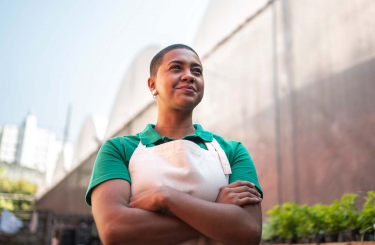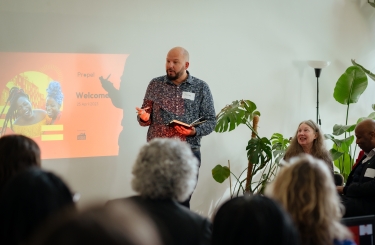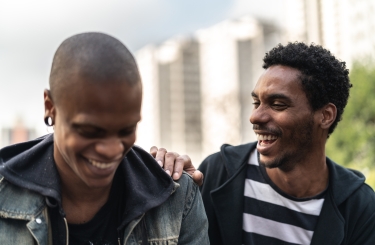

Part of our approach to learning involves creating a space for deeper reflection together with our members, making sense of the complex and ever-changing landscape that influences how funding decisions are made and using this learning to help shape wider funder practice.
From January to May, our focus was on interrogating an area that’s been high on the agenda for the last few years - what does it mean for funders to actually share power?
We heard a number of different perspectives from funders, changemakers and charities on this question through events, blogs and conversations. Perhaps what really stuck with us is how we need to move away from the idea that it is up to funders to decide what and when to share power with communities, towards understanding how to act in solidarity with communities. This sentiment was recently echoed in a case study (published by the Institute for Voluntary Action Research) of Lloyds Bank Foundation’s move to unrestricted funding which involved the board shifting “deliberations about performance to conversations about partnership”.
Working in solidarity requires ongoing work and commitment, it’s not a one-off opportunity for funders to give up some of the power they hold in deciding who, what and how civil society is supported. At a workshop we hosted, in partnership with the Sheila McKechnie Foundation, we heard that “working in solidarity means acknowledging the power we have and using it intentionally to address power imbalances. We need to think more deeply about power. Power is complex, and our failure to understand it is tripping us up”.
Power is the ability to create or resist change – it can therefore both undermine and enable solidarity
Sheila McKechnie Foundation, The Power Project
Following on from these learning points, it also made us wonder how the concepts of risk and power overlap and impact decisions that funders make - who is given the power and legitimacy to take risks? Is the fear of taking more risks rooted in a desire to hold on to power about how change is achieved?
Risk was also a topic frequently discussed at our annual Festival of Learning, including how traditional attitudes to risk often dissolve with closer examination.
Where traditional attitudes to risk might be impeding rather than enhancing the impact we aim to achieve, it might be time to reconsider how we work
Reflections from our Festival of Learning 2023
We still think there are lots of questions to unpack when it comes to risk – from how different funders view risk, to where we can learn from others on approaching risk differently, and ultimately working in greater solidarity with civil society and communities. These questions and more will be guiding our learning programme in the months ahead.
We are also keen to explore our own role in increasing funders’ tolerance for risk and creating opportunities where risk can be shared across funders. This includes working with others in the sector like our friends at the Institute for Voluntary Action Research on how local authorities can review their approach to risk and adopt the principles of Open and Trusting Grantmaking (more to come on this soon). We’ve also been talking to members for some time about developing a shared approach to due diligence and will be releasing more information about co-designing pilot projects to achieve this next week.
Our aim is to draw learning points from these work strands alongside regular conversations and events with members. If you want to share your own thoughts about risk via email or a meeting, please do get in touch with our Learning and Communications Manager, Malene Bratlie, here.


